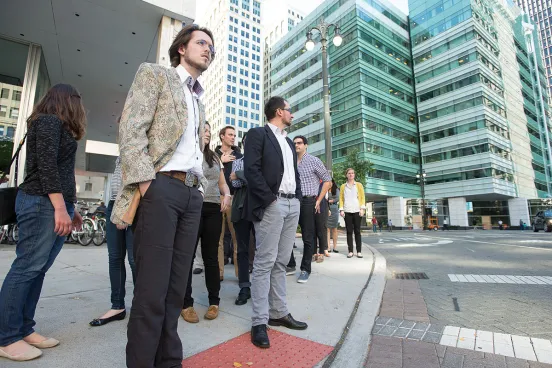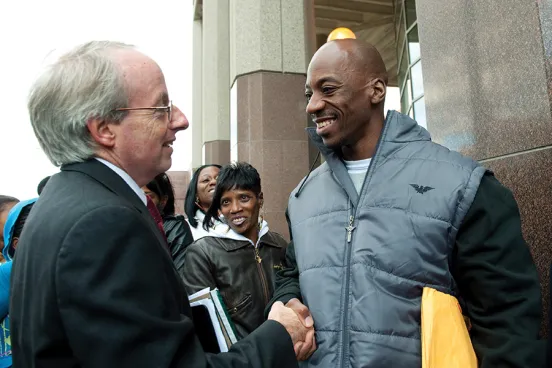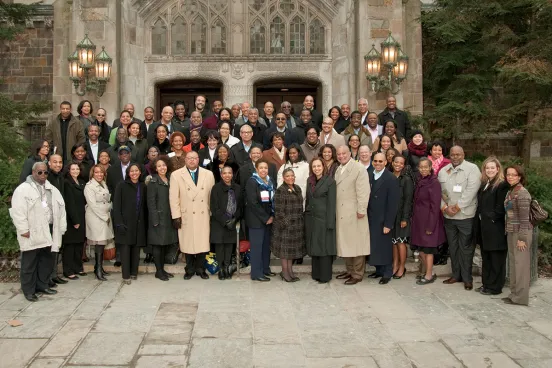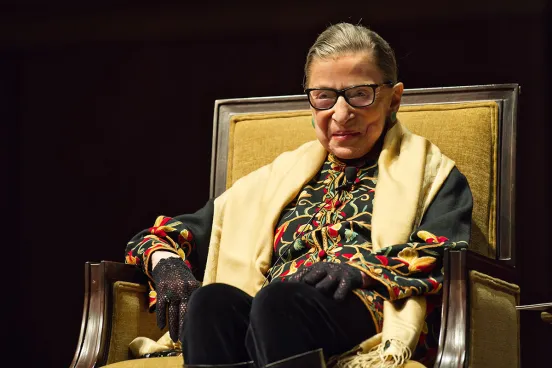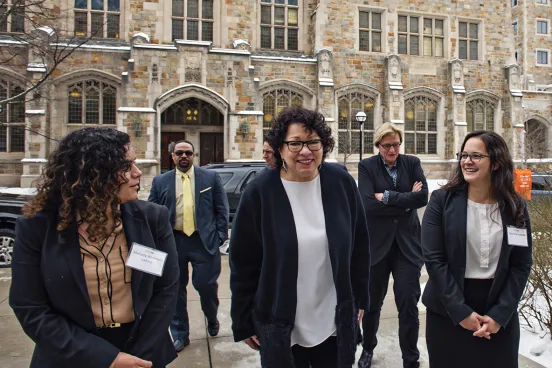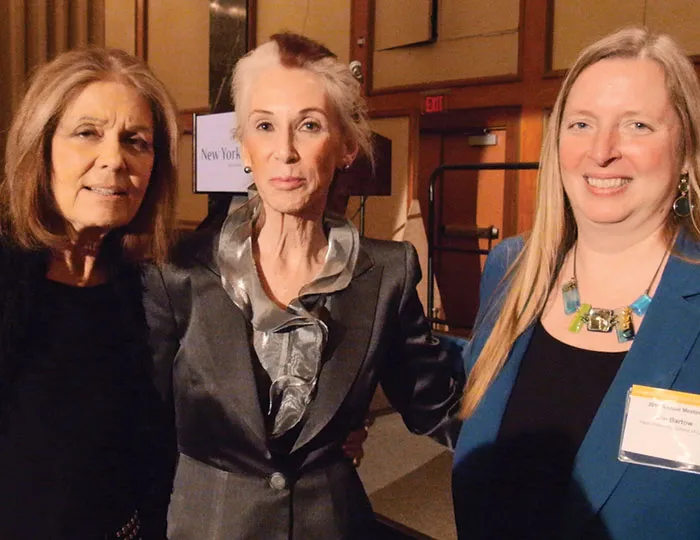
In the centuries-long campaign to advance women’s rights, the service of some has inspired generations even as their scholarship has rewritten the law of nations.
This year, the Association of American Law Schools’ (AALS) Section on Women in Legal Education recognized Professor Catharine A. MacKinnon as one of those extraordinary women.
The 2014 recipient of AALS’ Ruth Bader Ginsburg Lifetime Achievement Award, MacKinnon, the Elizabeth A. Long Professor of Law at U-M and the long-term James Barr Ames Visiting Professor of Law at Harvard, is only the second woman to receive the honor, after Supreme Court Associate Justice Ginsburg herself.
The significance of succeeding the award’s namesake—one of history’s greatest advocates for gender equality—was not lost on MacKinnon.
“That Justice Ginsburg received it gives it the meaning of groundbreaking, but many more will receive it in the future, each person adding their own distinctive focus and contributions to its significance,” MacKinnon says.
According to AALS, the award is intended to honor an individual who has had a “distinguished career of teaching, service, and scholarship for at least 20 years … someone who has impacted women, the legal community, the academy, and the issues that affect women through mentoring, writing, speaking, activism, and by providing opportunities to others.”
MacKinnon’s excellence in these areas is well known to Michigan Law Professor Margaret Jane Radin, who describes her colleague’s work as “game-changing.”
“She will be the first to tell you that the work is nowhere near done, but her inspiration of the many students she has educated over the years creates hope that the work will continue as long as it is still needed,” Radin says.
Pace Law School Professor Ann Bartow, one of several peer nominators, has long considered MacKinnon to be one of the most influential forces in gender law today.
“Professor MacKinnon is an engaging, riveting, generous, and magnetic presence,” Bartow wrote in her nomination. “She has inspired generations of law students, mentoring them with gentleness and sustained energy toward creative and enduring careers in all legal and social pursuits.”
Kathleen M. Sullivan, a former dean of Stanford Law School and partner at Quinn Emanuel Urquhart & Sullivan LLP, observed the systemic dimension of MacKinnon’s work in a comment submitted for the award ceremony.
“Catharine MacKinnon is to law what Simone de Beauvoir was to political economy: Her work illuminates how views of women are built into the very order of things, and how that structure may be dismantled. This is a most fitting award.”
To be recognized in such a way by her peers added an even deeper meaning to the award for MacKinnon. “It’s a bit like getting an Oscar that way,” she says of the process. “The award was a tremendous surprise.”
But amid the gracious comments of her colleagues, it was praise from a survivor of prostitution that had the greatest impact on MacKinnon.
“In all her work, you can hear her voice coming through the miasma of women’s oppression,” wrote the survivor, who chose to remain anonymous. “She has heard the screams, the desperation, the outrage, the silence of women and carried all that forward into the light to be seen and understood. Then, corrected.
“Few accept the burden or the losses this work has cost over the years. There is something about the determination to suffer wounds if need be while resisting oppression that seems to be in her that lets her be hurt over and over and just keep going. It is a fine line to walk, for all of us, between courage and shattering.”
Although this award recognizes MacKinnon’s “lifetime” of work, it hardly marks the end of her scholarship and activism for sex equality.
“We are, at best, at a halfway point,” MacKinnon says. “Essentially everything remains to be done for women, both in the U.S. and around the world, both by me and by everyone else. The United States still doesn’t even have an Equal Rights Amendment; far less have we stopped rape and prostitution. We’re just getting started and gaining traction.”
Though the award was individual, MacKinnon says the work is not. While accepting the award in person January 3 at the special AALS Section Award Luncheon in New York, she observed, “defying gravity is a collective project.”


